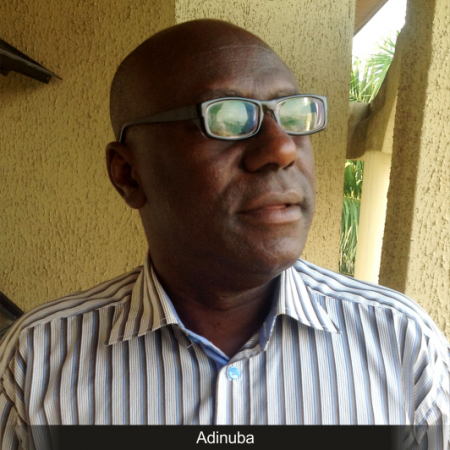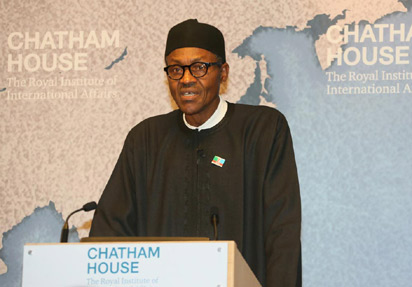By C. DON ADINUBA –
What I have read from the pen of Ikedi Ohakim is off the mark. It is a rehash of sentiments, as represented by such lines as Ndigbo being at the master’s table under Goodluck Jonathan’s presidency. Jonathan has been Nigeria’s leader in the last six years or thereabouts, and how have the Igbo been at the master’s table? What does being at the master’s table translate to in real terms?
The challenge facing Ndigbo is obvious: How can Igboland become a development model, so that millions of our people can stay at home and prosper? As things stand today, the Igbo are developing all parts of Nigeria except their homeland. How many of us participating in this conversation are based in Igboland? Have we bothered to reflect on the profound social and economic implications of this phenomenon? Why is it that practically every graduate of the University of Nigeria or FUTO or IMT or Nnamdi Azikiwe University or Ebonyi State University or Abia State polytechnic who wants to be gainfully employed has to, per force, leave the southeast for Lagos, Abuja or elsewhere?
It does not have to be so, and it shouldn’t be so. We know it has not always been like this. We know how Zik and Okpara, among other committed Igbo leaders, built West Africa’s foremost industrial layouts in Enugu and Port Harcourt. We know how such great state-owned enterprises as Golden Guinea, Standard Shoe Factory, Premier Breweries, Nigercem at Nkalagu, etc, came to be built. And they employed hundreds of thousands of our people whose remunerations were as competitive as those of their counterparts in Lagos and elsewhere. Where are those enterprises today or their successors? Why is Hotel Presidential in Port Harcourt booming today but Hotel Presidential in Enugu, built by the same government, at the same time and with the same architectural design, long gone decrepit?
Why is the current economic growth rate of the southeast at the same level as that of the war-ravaged northeast, according to statistics from the National Bureau of Statistics? If the southeast is still showing signs of growth, it is on account of huge transfers or remittances from huge and dynamic Igbo communities in all parts of Nigeria and the Diaspora. The Igbo are very conscious of their roots and hometowns and villages, and so regularly send money to their people which they use to pay school fees, defray hospital bills, build houses, etc.
But come to think of it: for a people famous worldwide for excellence in science and technology as well as manufacturing, is it not unfortunate that they should now depend on remittances for survival?
Ohakim’s contribution is a perfect example of our people’s obsession with hollow and identity politics to the detriment of collective development. There is no development content in his contribution. I sincerely hope that this contribution is not from the same person who is the immediate past governor of Imo State. If, indeed, it came from the former governor, then, the southeast currently ruled by tragic figures like Theodore Orji must be in a greater danger than most of us seem to appreciate. The ongoing Jonathan-mania in the southeast is truly difficult to understand. The truth is that Goodluck Jonathan will definitely end up as the greatest danger to the development of Igboland. As you read this brief write-up, the southeast is undergoing its worst de-industrialisation crisis ever in history.
According to the southeast zone of the Manufacturers Association of Nigeria (MAN), about 600 industrial firms in Igboland employing some 1million people are facing the risk of closing down soon because of the deteriorating electric power situation. Among them is Innosons manufacturing companies which are compelled to pay N100m monthly to the Enugu Electric Distribution Company, even though they spend roughly N60m every month on diesel alone because of irregular electricity supply. While electric tariff paid by industrial concerns across the country has since February 1 been jerked up by 24%, in accordance with the Nigerian Electricity Regulatory Commission (NERC) approval, the increase in the southeast controlled by the Enugu distribution firm is an astronomical 94%! Hence, there have been endless street protests in the streets of major towns and cities in the southeast, including hitherto unlikely places like Abakaliki known for docility. According to Chika Emelike, the founder of Kotek which manufactures the popular Tummy Tummy noodles in Nnewi, there is a tremendous pressure on manufacturing firms in the southeast to relocate to other parts of Nigeria.
No one is surprised at this development. The Enugu Electricity Distribution Company was privatized to Emeka Offor’s Interstate despite failing the technical and financial requirements to become the core owner of the power distribution firm. Both the Bureau of Public Enterprises and the National Council on Privatisation wrote a report to the Jonathan administration warning against giving the firm to Offor. The report rather recommended that the Eastern Electric consortium promoted by the five southeast state governments and such outstanding Igbo persons as Bart Nnaji, Pascal Dozie, Ernest Obiejesi-Azudialu and their foreign partners be handed over the distribution company. Ohakim, as Imo State governor, was one of the promoters of the consortium.
As usual, Igbo political leaders are playing deaf and dumb to the massive de-industrialisation of the whole of Igboland by the Jonathan government. They do not mind if Igboland goes to blazes so long as support for Jonathan’s re-election remains intact. Which makes discerning observers wonder if the Igbo political leaders owe allegiance to their own people or The Presidency in Abuja which bribes them massively with all kinds of currencies.
The bad news is that the electricity tragedy of the southeast is not confined to the privatization of Enugu DisCo to a consortium which has neither the technical skills nor the financial capabilities to run the business. The fate of the 141-megawatt Aba Power project, led by Prof Nnaji, is now hanging in the balance. Completed long ago, the project which cost over $500m cannot start commercial operations because the Jonathan government now says its fate will be determined by Interstate which, of course, is determined to kill it! This is a project which predated the privatization of the power sector; an agreement to its establishment was signed in 2005 and revised in 2006. Aba has no stable electricity, yet a huge project to end the electricity blight and turn the famous Enyimba City into truly Nigeria’s Japan is lying fallow, thanks to the pecuniary interests of some highly placed officials in the Jonathan government. Nnaji and co pay $3.5m monthly as interest. Please, answer me: how long will this perfidy against the Igbo people go on?
On Jonathan’s watch, the NNPC, chaired by Deziani Alison-Madueke, recently issued a directive to ExxonMobil in Nigeria to divert the little natural gas supplied to the southeast from its operations in Eket, Akwa Ibom, to Oben and other parts of Nigeria except the southeast. Consequently, General Electric, which was in negations with investors with a view to building a big power plant in Aba utilizing the gas, suspended talks. Still, Ohakim and the rest of Igbo politicians tell us that with Jonathan in State House the Igbo people are now at the master’s table. This is bunkum, as it can get.
Chekwas Okorie, the presidential candidate of the United Progressives Party, has been calling our attention to the fact that there is no Igbo man on the country’s security council. The Igbo are the only major ethnic group with this kind of dubious distinction. Yet, we are told that Jonathan is Igbo. Frankly, if this is what is meant by Igbo presidency we had better perish the thought.
If anything, Jonathan has been promoting the worst values in Igbo society. He awarded a high national honour to Theodore Orji, arguably the worst governor in history anywhere in the world – a governor who only three years ago retrenched all Igbo employees in the Abia State public service for being non-indigenes. Jonathan bestowed a national honour on Arthur Eze who became the chairman of Orient Bank and ruined it, forcing Paul Ogwuma as CBN governor to issue a directive banning him from ever being on the board of any bank. Arthur Eze became the chairman of Premier Brewery, the third largest brewery in Nigeria after Nigerian Breweries and Guinness, and destroyed it completely. He won the African Development Bank $110m contract for rural water supply and rural electrification in old Anambra State as well as the building of an industrial centre in Awka and was mobilized heavily, but did nothing. Still, Jonathan and his wife are foisting him on us as an Igbo leader and Igbo role model.
There is absolutely nothing Igbo about Jonathan. In fact, he is diametrically opposed to Igbo development. Bribing a couple of Igbo politicians who have thrown self-dignity to the dogs cannot convert a failed Ijaw president into an Igbo person overnight. These politicians are characters who on the eve of Jonathan’s visit to Onitsha on re-election campaign on January 17, 2015, posted on the Internet a picture of a bridge about to be completed somewhere and claimed unabashedly that it’s the second Niger Bridge, so as to hoodwink their own people into believing that considerable work had been carried out on the phantom bridge! Lest we forget, Jonathan declared at a town hall meeting in Onitsha on August 21, 2012, attended by then governor Peter Obi and Obi of Onitsha, among others, that he would go into exile if the second Niger Bridge was not completed in 2015!
As everyone knows, national expenditure on capital projects in the southeast is not only the lowest in the federation, it is a sixth of the expenditure in the north-central zone since Jonathan’s presidency! No wonder the Enugu-Onitsha highway is a shambles, like the Aba-Port Harcourt Road. The same goes for the Arochukwu-Ohafia Road, Ihiala-Orlu Road, and many other federal roads in our zone.
To conclude, Ohakim’s contribution to the search for a strategic direction for Ndigbo is as appalling as it is unfortunate. Pray, what is the big deal in supporting a failed president who has roundly been rejected by the international community, and has been the butt of derision by such African countries as Chad, Morocco, Zimbabwe and Niger Republic, to say nothing about the international press and international statesmen and women like Hillary Clinton and John McCain. This is a candidate most likely to be well defeated in the March 28, 2015, presidential vote.
The Igbo must now go into a totally different direction. We have been failed and short-changed by our so-called political leaders, solely guided by private gains of short-termism, as opposed to the common good and the noble concept of delayed gratification.
– Adinuba is head of Discovery International .














